#h.g. wells' things to come
Explore tagged Tumblr posts
Text
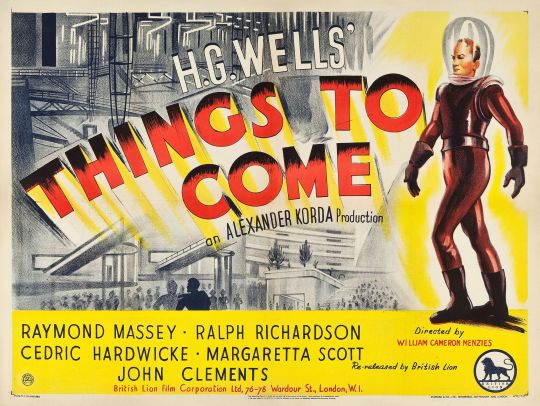

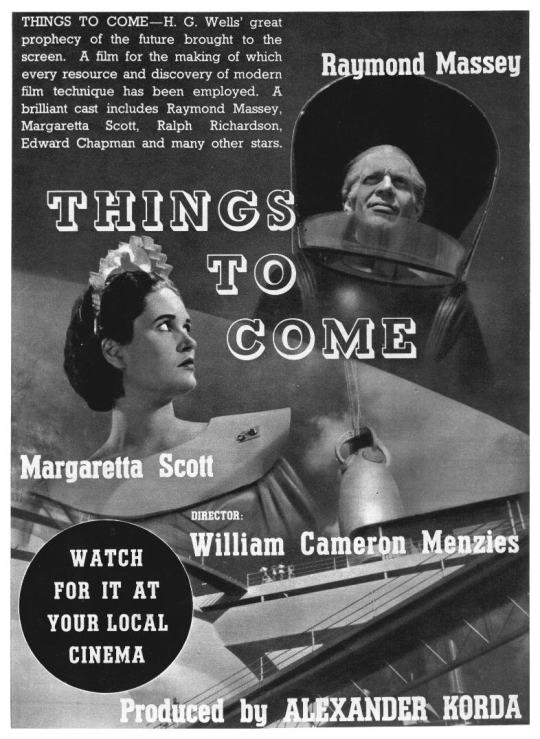

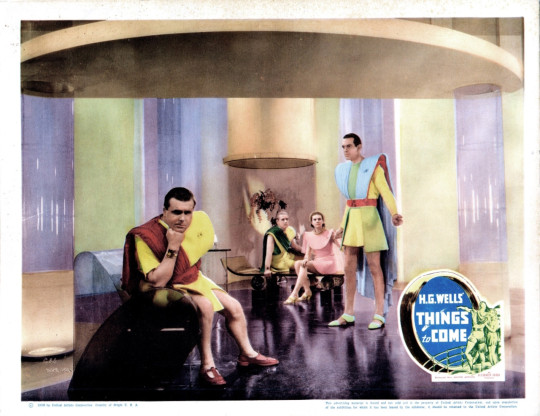
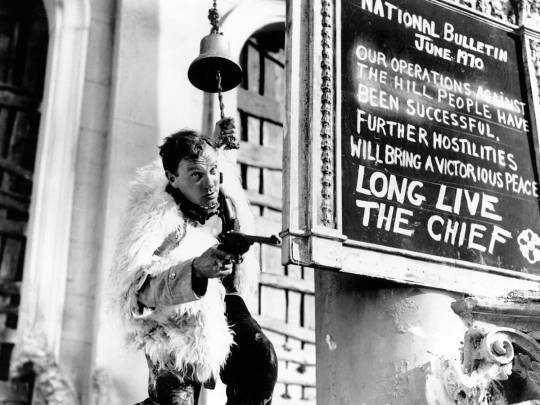
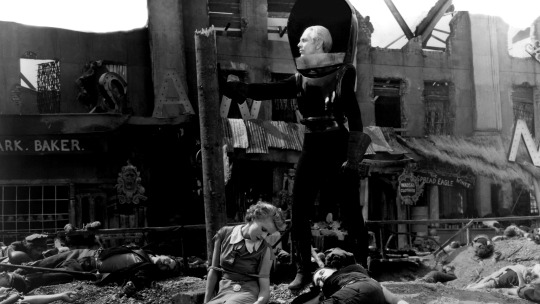



Things to Come (1936) William Cameron Menzies
September 18th 2024
#things to come#1936#william cameron menzies#raymond massey#ralph richardson#margaretta scott#edward chapman#derrick de marney#ann todd#maurice braddell#h.g. wells' things to come#the hundred years to come#the shape of things to come#whither mankind
6 notes
·
View notes
Text





0 notes
Text

Swedish poster for Things to Come, 1936, with Art Deco design by Moje Aslund.
74 notes
·
View notes
Text

Things To Come (1936)
#things to come#1936#william cameron menzies#the shape of things to come#h.g. wells#raymond massey#edward chapman#ralph richardson#margaretta scott#cedric hardwicke
7 notes
·
View notes
Text
On May 2, 1936, Things to Come debuted in Hollywood.


#things to come#h.g. wells#retro futurism#1930s#30s sci fi#sci fi art#science fiction#art#movie art#drawing#movie history#pop art#modern art#hollywood
4 notes
·
View notes
Text



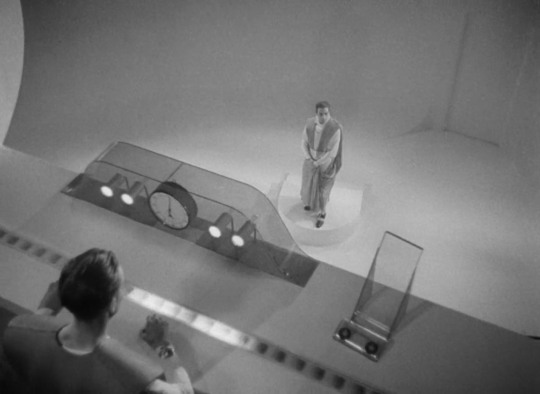
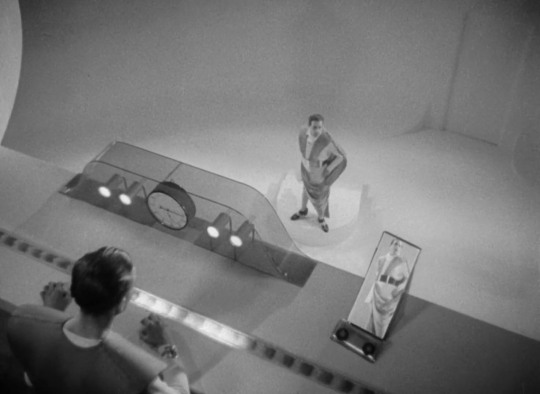



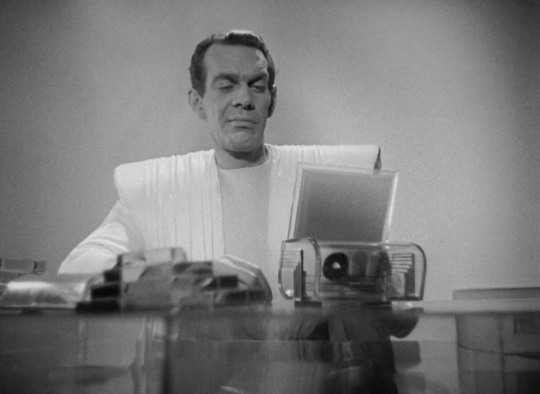
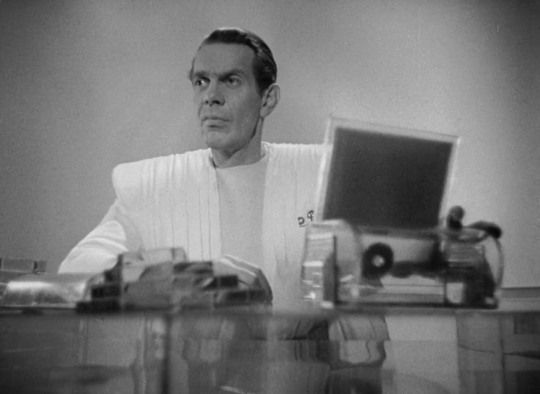
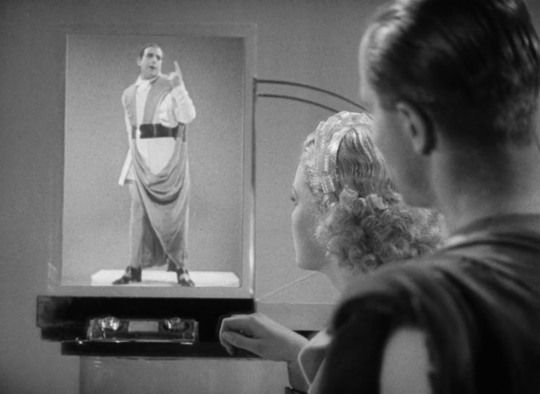
TV screens of the year 2036, from Things to Come (1936)
#things to come#1936#hg wells#h.g. wells#futurism#retrofuturism#2036#william cameron menzies#tv#television#screens#sci fi#science fiction#30s sci fi#1930s film#30s movies#cedric hardwicke#raymond massey#b&w#30s design
4 notes
·
View notes
Text



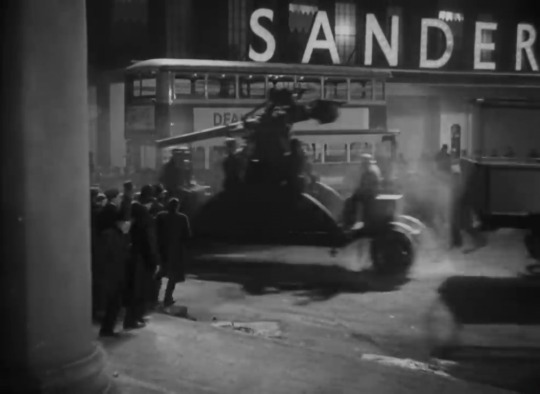



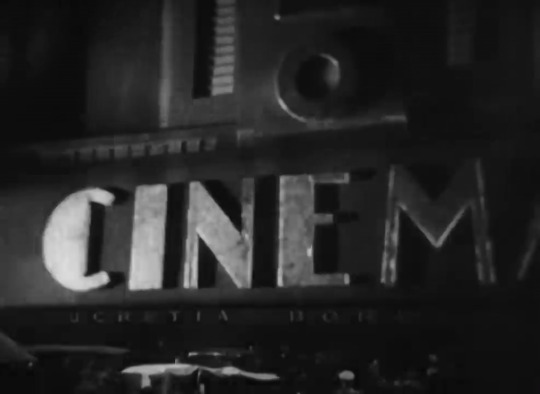

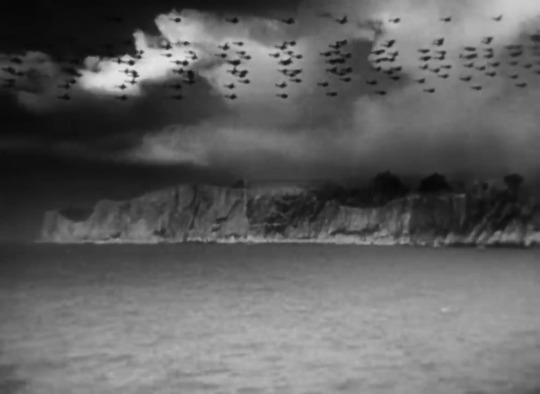
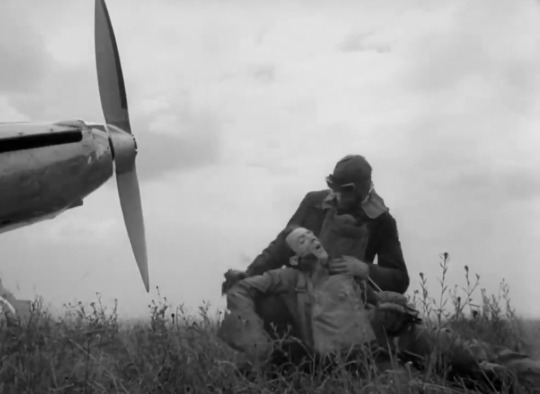




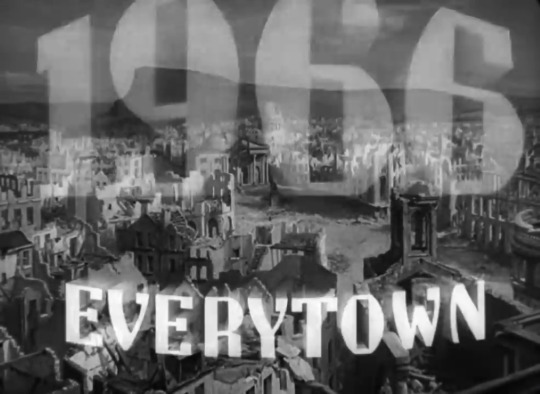


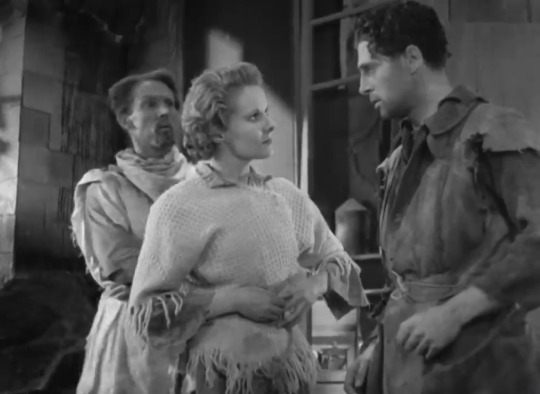


things to come, william cameron menzies 1936
#things to come#william cameron menzies#h.g. wells#1936#raymond massey#edward chapman#ralph richardson#margaretta scott#cedric hardwicke#maurice braddell#ann todd#sophie stewart#derrick de marney#sex pistols#banksy#first banksy#björk#army of me#richter#kahlo#material#buw#flyweight#about photography#uhw#corona#sander#war#the truth#music video
1 note
·
View note
Text
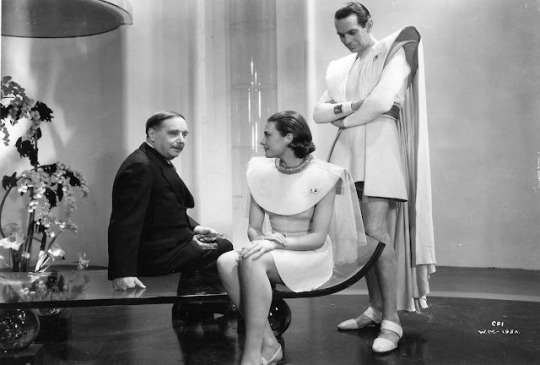
H.G. Wells, Pearl Argyle, and Raymond Massey on the set of Things to Come
Things to Come (William Cameron Menzies, 1936)
Cast: Raymond Massey, Edward Chapman, Ralph Richardson, Margaretta Scott, Cedric Hardwick, Maurice Braddell, Sophie Stewart, Derrrick De Marney, Ann Todd, Pearl Argyle. Screenplay: H.G. Wells, based on his novel. Cinematography: Georges Périnal. Production design: Vincent Korda. Costume design: John Armstrong, René Hubert, Cathleen Mann. Film editing: Charles Crichton, Francis D. Lyon. Music: Arthur Bliss.
Works of fiction that pretend to depict things as they will be in a specific place and year tend to look a little foolish when that year actually comes. The years 1984 and 2001 didn't turn out to be precisely as George Orwell and Arthur C. Clarke envisioned them. But neither Orwell nor Clarke expected them to: Both were extrapolating from what they saw about the times in which they were writing. Orwell was viewing with alarm the struggle for power in 1949, and Clarke was elaborating on thoughts he had about the relationship of man, technology, and nature -- for good or ill -- in a series of stories beginning with "The Sentinel" in 1948. It's significant that both of these writers were working from a post-World War II point of view. But Things to Come starts from a very different place: England just before the second World War. H.G. Wells's 1933 The Shape of Things to Come was a meditation on a utopia founded on science, replacing religions, and a world government, replacing nationalism. The adaptation of these ideas in Wells's screenplay involves a world on the brink of war at Christmas, 1936 -- less than three years before the world actually went to war. Wells didn't have to wait long to see the ideas in the film superseded by reality. In the film the conflict lasts 40 years, and is devastating to the old order of things. There arises a kind of technotopia, which then has to battle with (and triumph over) reactionary, anti-science forces. We no longer have the kind of undimmed faith in technology to solve all problems that Wells possessed -- in fact, if the atomic outcome of World War II is any indicator, technology presents as many problems as it solves for humankind. Things to Come is muddled but fascinating: It raises the right questions while providing unsatisfactory answers. The best things in the film are the ones closest to home. For example, Ralph Richardson's performance as the dictator known as "The Boss" -- a slangy translation of Il Duce. Richardson's eccentric manner is the key to the role, and he plays it to the hilt. Unfortunately, Menzies, a gifted designer, wasn't much of a director, and he surrounds Richardson with inferior performers: Margaretta Scott, who had a long career once she grew accustomed to film acting, here recites her lines as if reading them for the first time and assumes poses copied from silent film vamps. For contemporary viewers, the most interesting things about the film are the set designs by Vincent Korda and the fantasias about what people will be wearing in 2036 -- which in Wells's scheme of things is the year of the first voyage around the moon. The costumes are credited to John Armstrong, René Hubert, and the Marchioness of Queensberry. (Her given name was Cathleen Mann; a portrait painter and costumer, she was married to the 11th Marquess of Queensberry from 1926 to 1946.)
1 note
·
View note
Text
100% Legally Sourced Media (Google Drive)
Here is a link for a whole bunch of movies, tv shows and more -
Hopefully all the prior issues with getting things to open or show up have been fixed, but if not let me know specifically what isn't working and I will try to re-upload it.
below is a list of the things currently on my google drive, I may add more and keep updating this list periodically as things get put on the drive.
Audiobooks and Audio Dramas
Fiction
1984 By George Orwell
A Tale of Two Cities By Charles Dickens
Animal Farm By George Orwell
Bleak House By Charles Dickens
Bridgerton Series By Julia Quinn
Chemistry By Rachael Sommers
Daisy Jones and the Six By Taylor Jenkins Reid
David Copperfield By Charles Dickens
Do Not Disturb By Freida McFadden
Dracula By Bram Stoker
Eve of Man Series By Tom Fletcher & Giovanna Fletcher
Fellow Travelers By Thomas Mallon
Frankenstein By Mary Shelley
Fried Green Tomatoes at the Whistle Stop Cafe By Fanny Flagg
Friends of Dorothy By Sandi Toksvig
Gone Girl By Gillian Flynn
Gothic Tales By Arthur Conan Doyle
Great Expectations By Charles Dickens
H.G. Wells The Science Fiction Collection By H.G Wells
It By Stephen King
Jurassic Park By Michael Crichton
Les Misérables By Victor Hugo
Little Women By Louisa May Alcott
Mansfield Park By Jane Austen
Me Before You By Jojo Moyes
Neon Roses By Rachel Dawson
No One I knew By A. J. McDine
Oliver Twist By Charles Dickens
Pride and Prejudice By Jane Austen
Red, White & Royal Blue By Casey McQuiston
Sense and Sensibility By Jane Austen
Should Have Known Better By A J McDine
Stranger in the Woods By Anni Taylor
The Complete Sherlock Holmes Collection By Arthur Conan Doyle
The Exorcist By William Peter Blatty
The Forgetting By Hannah Beckerman
The Girl on the Train By Paula Hawkins
The Glitch By Leeanne Slade
The Great Gatsby By F. Scott Fitzgerald
The Honey Witch By Sydney J. Shields
The Invite By A. J. McDine
The Murder Game By Tom Hindle
The Picture of Dorian Gray By Oscar Wilde
The Promise You Made By A. J. McDine
The Woman in Black By Susan hill
The Wonder Boy of Whistle Stop By Fannie Flagg
The Wrong Sister By Claire Douglas
Think Again By Jacqueline Wilson
Torchwood
We Play Games by Sarah A. Denzil
When You Least Expect It By Haley Cass
Non Fiction
A Billion Years My Escape from a Life in the Highest Ranks of Scientology By Mike Rinder
All I Know Now By Carrie Hope Fletcher
Apparently There Were Complaints By Sharon Gless
Bad Gays A Homosexual History By Huw Lemmey & Ben Miller
Barnum's Own Story By P T Barnum
Best Foot Forward By Adam Hills
Between the Stops By Sandi Toksvig
Beyond Belief By Jenna Miscavige
Black Mass By Gerrard O’Niell & Dick Lehr
Blown for Good - Behind the Iron Curtain of Scientology By Marc Headley
Boy From the Valleys By Luke Evans
Che Guevara By Jon Lee Anderson
Church of Lies By Flora Jessop & Paul T. Brown
Coming Up for Air By Tom Daley
Dare to Dream By Izzy Judd
David Bowie Made Me Gay - 100 Years of LGBT Music By Darryl W Bullock
Deaf Utopia By Nyle DiMarco
Escaping the Kingdom of God By J. Andrew Robinson
Fahrenheit-182 By Mark Hoppus
Fathomless Riches By Rev Richard Coles
Freddie Mercury The Definitive Biography By Lesley-Ann Jones
Friends, Lovers and the Big Terrible Thing By Matthew Perry
From Here to the Great Unknown A Memoir By Lisa Marie Presley & Riley Keough
Help I S*xted My Boss By William Hanson & Jordan North
Karma By Boy George
Letters on Motherhood by Giovanna Fletcher
Mama’s Boy By Dustin Lance Black
Notorious by Raphael Rowe
Once upon a Tyne By Ant & Dec
Our Story By Reg and Ron Kray
Over Our Dead Bodies By Todd Harra & Kenneth McKenzie
Rainbow History Class By Hanna McElhinney
Scientology: Abuse at the Top By Amy Scobee
Sh**ged. Married. Annoyed By Chris Ramsey & Rosie Ramsey
The Church of Fear by John Sweeney
The Doomsday Mother By John Glatt
The House of My Mother By Shari Franke
The Hundred Years' War on Palestine By Rashid Khalidi
The Mayor of Castro Street By Randy Shilts
The Peer and the Gangster By Daniel Smith
The Phantom Prince By Elizabeth Kendall
Under the Banner of Heaven By Jon Krakauer
Under the Bridge By Rebecca Godfrey
Documentaries and Docudramas
A Lion Called Christian
A Very British Sex Scandal
Abused By My Girlfriend
Accused - The Hampstead Paedophile Hoax
Aids - The Unheard Tapes
Alex Brooker: Disability and Me
Bad Influence: The Dark Side of Kidfluencing
Bad Influencer - The Great Insta Con
Bowie - The Man Who Changed The World
Boyzone: No Matter What
Children of the Underground
Dancing for the Devil - The 7M TikTok Cult
Daughters of the Cult
Desperately Seeking Soulmate - Escaping Twin Flames Universe
Devil in the Family: The Fall of Ruby Franke
Dinosaurs - The Final Day with David Attenborough
Dirty Pop - The Boy Band Scam
Driven - The Billy Monger Story
Escaping Polygamy
Escaping Twin Flames
Freddie Mercury - The Great Pretender
Frozen Planet
Frozen Planet II
Good Grief with Reverend Richard Coles
Hatton Garden - The Inside Story
Hell Camp - Teen Nightmare
I Am Not A Rapist
I Cut Off His Penis - The Truth Behind The Headlines
Ireland's Mother and Baby Scandal
Killing Patient Zero
Leah Remini: Scientology and the Aftermath
Lewis Capaldi - How I'm Feeling Now
Liar: The Fake Grooming Scandal
Living Every Second: The Kris Hallenga Story
Lord Montagu
Mama's Boy
Matt Willis: Fighting Addiction
Murdaugh Murders - A Southern Scandal
Murder Among the Mormons
My Wife My Abuser - Captured On Camera
Pennywise - The Story of It
Planet Earth
Planet Earth II
Queen - Days Of Our Lives
Sacred Soil - The Piney Woods School Story
Sarah Everard: The Search for Justice
Scientology: Going Clear - The Prison of Belief
Soham: The Murder of Holly & Jessica
Stolen Youth - Inside the Cult at Sarah Lawrence
Strike - An Uncivil War
Strike! The Women Who Fought Back
Striking with Pride: United at the Coalface
Surviving Amber Heard
Take Care of Maya
The Bambers : Murder at the Farm
The Boys - The Sherman Brothers' Story
The Exorcist Untold
The Family
The Krays - The Mafia Connection
The Menendez Brothers
The Millennium Dome Heist With Ross Kemp
The Movies That Made Us
The Pembrokeshire Murders - Catching the Gameshow Killer
The Program - Cons, Cults and Kidnapping
The Settlers
The Times of Harvey Milk
Tom Daley 1.6 Seconds
Uprising
Waco - American Apocalypse
Warren Jeffs: Prophet of Evil
Wonders of the World I Can't See
Films
A Haunting in Venice
About a Boy
All of Us Strangers
American Psycho
Armageddon
Bad Tidings
Basic Instinct
Beautiful Boy
Beautiful Thing
Beetlejuice
Boy Erased
Boys Don’t Cry
But I'm a Cheerleader
Chicago
Child's Play
Chocolat
City of Lies
Clue
Contagion
Cool Runnings
Corpse Bride
Dallas Buyers Club
Dawn of the Dead
Death on the Nile
Deck the Halls
Die Hard
Dirty Dancing
Donnie Brasco
Downton Abbey
Edward Scissorhands
Eternal Sunshine Of The Spotless Mind
Extremely Wicked, Shockingly Evil and Vile
Fear and Loathing in Las Vegas
Four Weddings and a Funeral
Fried Green Tomatoes
From Hell
Gone Girl
Gremlins
Hairspray
Handsome Devil
Heathers
Heathers - The Musical
Home Alone
Hot Fuzz
How the Grinch Stole Christmas
How to Lose a Guy in 10 Days
IT
Jaws
Jingle All The Way
Jumanji
Jurassic Park
Kill Your Darlings
Kindergarten Cop
Kinky Boots
Labyrinth
Legally Blonde
Legend
Les Misérables
Les Misérables: The Staged Concert
Little Shop of Horrors
Little Women
Love Actually
Mean Girls
Midsommar
Milk
Minamata
Miracle on 34th Street
Moulin Rouge!
Murder on the Orient Express
Murdered for Being Different
Newsies
Oliver!
Philadelphia
Pirates of the Caribbean
Portrait of a Lady on Fire
Prayers For Bobby
Pride
Pride and Prejudice
Red, White and Royal Blue
Rent
Scarface
Scream
Scrooged
Secret Window
Shaun of the Dead
Shelter
Sister Act
Sleepy Hollow
Star Wars
Sweeney Todd - The Demon Barber of Fleet Street
The Addams Family
The Amityville Horror
The Blair Witch Project
The Conjuring
The Craft
The Crow
The Exorcist
The Full Monty
The Greatest Showman
The imitation Game
The Muppet Christmas Carol
The Nightmare Before Christmas
The Santa Clause
The Shawshank Redemption
The Sixth Sense
The Sound of Music
The Tourist
The Woman in Black
Three Men and a Baby
Three Men and a Little Lady
Titanic
Transcendence
Twister
Uncle Buck
Unicorns
West Side Story
What We Did on Our Holiday
White Christmas
Willy Wonka and the Chocolate Factory
Zola
Stand Up Comedy
Adam Hills
Chris McCausland
Chris Ramsey
Daniel Howell
Daniel Sloss
Dara O'Briain
Ed Byrne
Fern Brady
Greg Davies
John Bishop
Rhod Gilbert
Sarah Millican
Sean Lock
TV Shows
90210
Agatha All Along
Alan Davies: As Yet Untitled
Apple Cider Vinager
Being Human
Big Night of Musicals
Bridgerton
Celebrity Race Across the World
Code of Silence
Criminal Minds
Cuckoo
Daisy Jones and the Six
Deadwater Fell
Desperate Housewives
Doctor Who
Downton Abbey
Dynasty
Eyewitness
Fellow Travelers
Fire Country
Friends
Good Girls
Good Omens
Good Trouble
Heartstopper
I'm a Celebrity Get Me Out of Here!
Interview with the Vampire
It's A Sin
Killing Eve
Looking
Mary & George
Mid-Century Modern
Midnight Mass
Missing You
My Family
My Wife and Kids
Nevermind the Buzzcocks
One Tree Hill
Parenthood
QI
Queer as Folk
Shameless
Sky Med
Sleepy Hollow
Switched at Birth
Taskmaster
The Alienist
The Artful Dodger
The Clearing
The Couple Next Door
The Fosters
The Haunting of Bly Manor
The Haunting of Hill House
The Jetty
The Midnight Club
The Misinvestigations of Romesh Ranganathan
The Pembrokeshire Murders
The Perfect Couple
The Society
The Stranger
The Unofficial Science Of…
The Watcher
Torchwood
Toxic Town
Under the Banner of Heaven
Under the Bridge
Virgin River
WandaVision
White Collar
White House Farm
#google drive#red white and royal blue#die hard#doctor who#les misérables#shameless#queer as folk#interview with the vampire#torchwood#eyewitness#pride#star wars#pirates of the caribbean#pride and prejudice#fire country#films#movies#tv shows#stand up comedy#documentaries#dan and phil#little women#bridgerton#virgin river#killing eve#leah remini#piracy#audiobooks#audio drama#fiction
713 notes
·
View notes
Note
I remember reading that in some of Lovecraft's later letters, he had a profound change in his racism and otherwise unpleasantness. Do you know what I'm talking about? Might you know where to find those specific correspondences?
(Going to be citing letters throughout this, which can easily be found by googling Lovecraft letter to [named correspondent] [date]. Don't have time at the moment to hyperlink everything.) I wouldn't say profound, but he mellowed out. His most extreme racism shows up largely in his 1910s to 20s writings, which is when he was talking about a "Teutonic master race" of which the Anglo-Saxon was the superior breed, the genetic inferiority of the Celts, and praising the KKK. This started to diminish largely due to exposure to people. He learned he was partially Welsh, and he began a deep friendship via correspondence with Robert E. Howard, who, like many Irish-Americans of the time, had a strong connection to a fantastical image of his Celtic ancestors revived through the late Victorian imagination. His anti-Celtic statements were always something of an affectation of British Imperial attitudes rather than anything that really made sense for a turn of the century Rhode Islander, and they were the first thing to fall away. His antisemitism also shifted after his meeting with his wife of seventeen years, Sonia Greene, and friendship with Robert Bloch; apparently he would still say dumb shit but they were quick to call him out on it. In his November 8, 1934 letter writer John Vernon Shea, he expresses embarrassment on some of his older and then still lingering views and specifically asks Shea not to quote them at Bloch. Possibly the most influential figure in his social circle, however, was James Ferdinand Morton, Jr., an anarchist political writer, Baha'i convert, and NAACP member frequently who took Lovecraft to task for his racism and basically helped him see that the KKK was a terrorist organization. Lovecraft had hideous views but he was also a rather soft sort - not from an anti-racist angle, but actual violence was a thuggish act unsuited of a gentleman. This was also what was causing some of his shifts in his antisemitic statements in that 1934-37 period; he was still bigoted, but didn't like the news that coming out of Europe.
But he also never dropped his anti-Black racism, and I would recommend looking into his correspondence to Morton, particularly his March 23, 1931 letter, where he dismisses Franz Boas' well-evidenced skepticism towards the then fashionable anthropological racial divisions. He was willing to change and even deconstruct his views on everyone else, but kind of put his foot down when it came to Black people. By 1934 (and note that he died on March 15, 1937), his attitudes had largely shifted to a kind of Anglo-Saxon Cultural Supremacism mixed with his growing sympathies with non-Marxist Utopian socialism (somewhat of the Edwardian progressive H.G. Wells sort), best expressed in his November 22, 1934 letter to poet Natalie H. Wooley [Collected with his letters to Robert Bloch] and a January 18, 1931 letter to Morton . He basically started to ease up on the genetic racism (though the anti-Black racism never went away, at least not in anything recorded his writing) and pivoted to a notion that anyone could plausibly achieve an equal level of civilization as the WASP/"Nordic," but he still had a strong streak of racial/societal separatism, expressing a distrust of "cultural mongrelism" as late as January '31 [to Morton]. The one thing I would push back on is the common statement that he was unusually racist and antisemitic for his time, which really isn't true considering that his most extreme statements were also platforms of mainstream political parties in the 10s to 40s, and the pulp fiction published alongside his works were pretty much just as shitty, if not worse. It's just that he and Howard are some of the few pulp magazine writers from the period that we still read, so the cringe lingers. He was always a bigot, despite some evolution, but what's particularly interesting about him is that he was willing to maintain a social circle of people who would call him out on it. Complicated guy, but I think a lot of this is wondering what he would have become if he lived to see the 40s to 60s and kind of hoping that he would have kept changing.
154 notes
·
View notes
Text

A rough landing in British illustrator Reg Hill's pre-production art for The Shape of Things to Come, 1979.
131 notes
·
View notes
Text
I'm getting quite impatient waiting for the next episode, so I'm just going to list all the possible s5 endings that I can think of along with the popular ones that I've come across
▪︎ The good ending AKA the delusional ending
Verlaine, Natsume, Yosano, H.G. Wells or someone- ANYONE shows up to save the day and then everything gets resolved and returns to normal. And so everyone lives happily ever after
▪︎ The sad but hopeful ending
Aya's ability is revealed, Bram's backstory followed by his death, which results in the vampirism being nullified. The DoA loses. Fukuchi dies/gets caught. Dazai has a plan. He and Chuuya take down Fyodor together in true Soukoku fashion. Fyodor dies/gets caught.
▪︎ The fake out ending
Dazai dies, Fukuzawa dies, basically anyone who is on the verge of death of death, dies BUT someone finds the book or the page (someone from ADA? Atsushi?) and brings them all back.
▪︎ The bad (sad) ending
Fukuzawa dies and everything falls apart. Atsushi loses control of his ability. It's the end of ADA (Goodbye Twilight theory- The ADA oversees the twilight so it's a goodbye to the agency)
▪︎ The doomed bungover ending
The whole world ends, and everyone just freaking dies. *55 minutes flashback intensifies*
▪︎ The Ranpo ending
Ranpo has a plan beyond the whole "trapping Fukuchi in Poe's novel" thing (in Ranpo we trust)
▪︎ The best ending
It's a rightfully deserved beach episode! (The past 2 seasons were not real. All the characters are alive and well, being silly as usual)
If Asagiri is involved in the making of the next episode (which he most likely is), then knowing him, he's probably gonna defy our expectations and write the most unpredictable ending for this season
#I have wayyy too much time on my hands right now and this is the result of that#these are all very real possibilities because Asagiri told me so#bsd#bungou stray dogs#bungo stray dogs#bsd dazai#dazai#osamu dazai#bsd manga#bsd spoilers#skk#soukoku#bsd shitpost#bsd theories#bsd fukuzawa#ranpo edogawa#bsd ranpo#bsd ramblings#bsd s5#bungou stray dogs season 5#bsd theory
448 notes
·
View notes
Text
On May 6, 1938, Things to Come debuted in Italy.


#things to come#h.g. wells#retro futurism#retro futuristic#science fiction#sci fi#sci fi and fantasy#sci fi art#dystopian science fiction#dystopian sci fi#dystopian film#post apocalyptic film#1930s#1930s sci fi#movie art#art#drawing#movie history#pop art#modern art#pop surrealism#cult movies#portrait#cult film
3 notes
·
View notes
Text
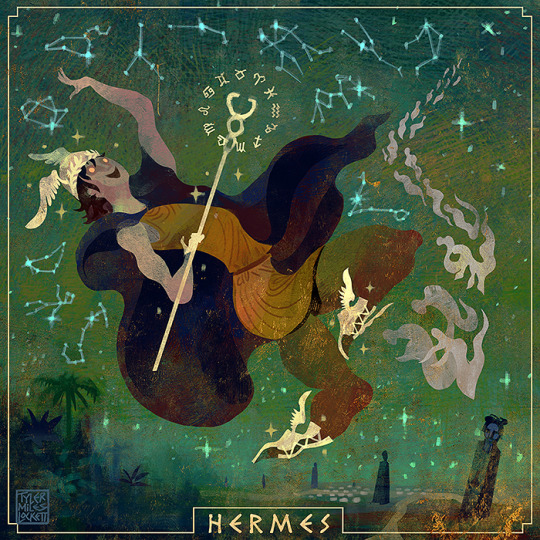
HERMES
“I sing of Cyllenian Hermes, the Slayer of Argus, lord of Cyllene and Arcadia rich in flocks, luck-bringing messenger of the deathless gods. He was born of Maia, the daughter of Atlas, when she had made with Zeus, -- a shy goddess she…. And so hail to you, Son of Zeus and Maia; with you I have begun: now I will turn to another song! Hail, Hermes, giver of grace, guide, and giver of good things! (-Homeric Hymn, translated by H.G. Evelyn white)
HERMES (HUR-meez), is the trickster herald and messenger of the gods, as well as god of diplomacy, commerce, travelers, and trade. He is one of the few deities with the power to move between the earthly and underworld realms. Initially he was portrayed as middle aged with dark beard and long locks, but later he was portrayed as a beardless youth. He created the first musical instruments, the lyre and flute, and, interestingly, was the father of goat legged Pan.
Hermes is a psychopomp; (a leader of spirits into the Underworld.) He also appears as an ally to mortals in a number in myths:. Hermes assists Perseus by providing an adamantine sickle sword to behead Medusa, and in the Odyssey, Hermes assists Odysseus by providing a magic herb to protect the hero against the witchcraft of Circe.
Hermes mother is Maia, one of the PleiadesPleaides, who eventually became constellations. With this ancestry, Hermes has associations with both Astronomy (sky constellations) and astrology (zodiac signs surrounding his herald’s wand). He was also the god of sleep, and could put mortals to sleep or wake them up with his wand. Being the god of travelers and herds, at the bottom we can see stone markers called Herma, and a herd of sheep.
Want to own my Illustrated Greek myth book jam packed with over 130 illustrations like this? Support my book kickstarter "Lockett Illustrated: Greek Gods and Heroes" coming in early 2024. check my bio LINKTREE
#pagan#hellenism#greek mythology#tagamemnon#mythology tag#percyjackson#dark academia#greek#greekmyths#classical literature#percy jackon and the olympians#pjo#homer#iliad#classics#mythologyart#art#artists on tumblr#odyssey#literature#ancientworld#ancienthistory#ancient civilizations#ancientgreece#olympians#greekgods#agamemnon#troy#trojanwar
339 notes
·
View notes
Text

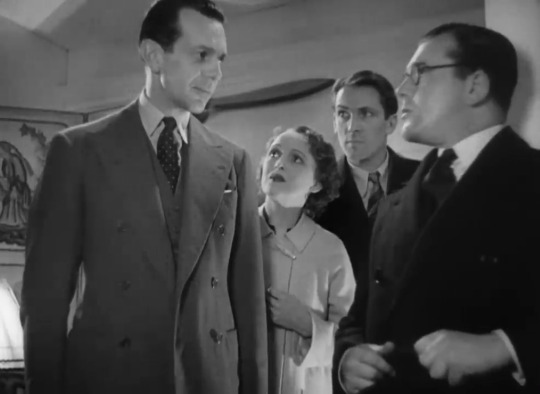
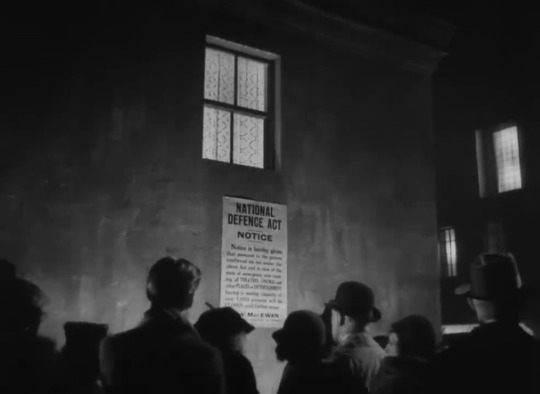
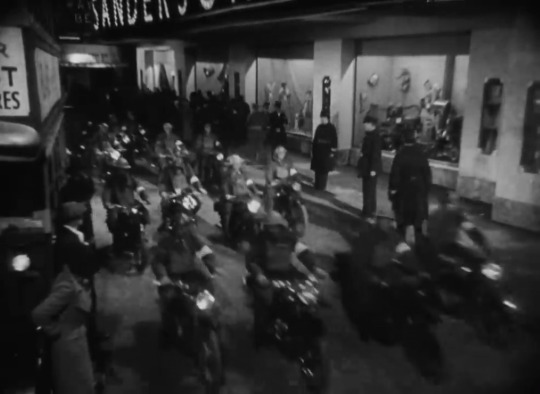

things to come, william cameron menzies 1936
#things to come#william cameron menzies#h.g. wells#1936#raymond massey#edward chapman#ralph richardson#margaretta scott#cedric hardwicke#maurice braddell#ann todd#sophie stewart#derrick de marney
1 note
·
View note
Text

Later...
Claudia: Why do you look like that, man?
Pete: I can't get this bronzer to come off.
Claudia: Did you get the temporary stuff?
Pete: Tem... porary?
Claudia: Dude.
Pete: Huh, well that explains that.
Claudia: Why do you even have it on to begin with? And so much?
Steve enters the kitchen, stops and stares at Pete.
Steve: Who won an Oscar?
Claudia laughs, pointing at Pete.
Pete: Ha ha very funny.
Claudia: It was.
Pete: Hey, leave the jokes to a professional, okay? Of which, I am.
Steve: Not at all shockingly, you truly believe that.
Pete: It's the first day of October. I'm just trying out a few costumes before the 31st, to see if I can get H.G. back into the spirit of Halloween.
Steve: I wish you were lying.
Claudia: Do we want H.G. back in the spirit of Halloween? I recall the last Halloween that she was into being a bit too spirity.
Pete: Of course, we do--
Steve: Not. We absolutely do not. Do you not remember what happened?
Pete: Yeah, we all went on an amazingly awesome adventure in the Warehouse, together, as a family. We fought off animated Halloween decorations that stalked us in the dark. Myka used the zip-line upside-down like a bad ass to save her wife from encroaching darkness. And then we blew up every light in the warehouse to level an army of murderous, soul-snatching plastic skeletons--
Steve: That took us days to clean up...
Claudia: I'm still changing lightbulbs...
Pete: --and I'm not so sure all of those skeletons were plastic.
Claudia: It was kind of fun blowing up the Warehouse. You know, in a not-destructive kind of way.
Steve: No, no. It was destructive. It was a very destructive kind of way.
Claudia: Right. Sure. But we didn't have to artifact it back.
Pete: What's another warehouse explosion amongst friends, huh?
Claudia: I mean, I do still have some light bombs stashed away in my room. Don't tell Artie.
Pete: That's the spirit!
Steve: I just want to drink hot tea, read a book, and watch the weather change from the comfort of my own bed, in my own room. Is that so much to ask?
Steve does not wait for an answer. He turns and leaves the kitchen.
Abigail enters in his place, she stops and stares at Pete.
Then bursts into laughter.
Abigail: I really thought Myka was pulling my leg when she said you'd lathered yourself up in bronzer, just to play a prank on Helena.
Pete: It wasn't a prank. It was encouragement. She loves Halloween!
Abigail: She loved Halloween. I think the soul-snatching skeletal remains of a Spirit Halloween clearance sale sucked that love right out of her.
Pete: Well. She liked my costume.
Abigail: That's not what I heard.
Pete: Then you've heard nothing but dirty, rotten lies.
Abigail: Did she seem amused when you revealed your costume?
Pete: She didn't seem entirely unamused.
Abigail arches a skeptical brow at Pete.
Claudia: What was the prank?
Pete: Not a prank.
Claudia: What was the not-a-prank?
Abigail: Apparently, when Helena questioned him about (Abigail gestures toward Pete with her hand) this, he said, very enthusiastically, that he'd been bronzed.
Claudia: Peter Jenkins Lattimer.
Pete: That is not my middle name.
Claudia: The woman has trauma!
Pete: It was inspiration!
Claudia: Fueled by nightmares!
Abigail: I don't think the woman who spent a century encased in bronze needs to be inspired. Like, at all.
Pete: That was a century ago.
Claudia: No, it started a century ago. She's barely been free for one decade.
Abigail: You do know she remained conscious the entire time.
Pete: I know she remained conscious the entire time.
Claudia: And was so fucked up when she got out, all she wanted to do was destroy the world and everyone in it.
Pete: I mean, I was there. So yeah. I do recall her attempting to, at one point in time, destroy the world and everyone in it. Thankfully Myka's hotness saved our asses.
Claudia gasps.
Pete: What?
Claudia: You did bronzeface!
Pete: What? No. That's not a thing.
Claudia: You're doing it right now!
Pete looks to Abigail.
Abigail: Don't look at me. I was born this way.
Claudia: I can't believe you did bronzeface at H.G.
Pete: Stop saying it like it's a thing.
Claudia: People from the bronze sector do not deserve to be mocked in your incessant quest for validation and frights.
Pete: They are literally criminals.
Abigail: Wow, Pete. I really thought better of you.
Pete: You know what, I'm just going to go take a very long and very hot shower until either the bronzer or my skin comes off. Whichever happens first.
Pete exits.
Claudia, laughing and calling after Pete: Hey, maybe try painting yourself blue tomorrow instead. Pretty sure none of us has ever been Smurfed.
Claudia and Abigail fall into a fit of laughter.
Somewhere between the kitchen and the upstairs bathroom, Pete retrieves his phone from his pocket and says, "Hey Siri?"
She appears.
And Pete whispers into his phone, "What is bronzeface?"
#bering and wells#and go away pete#halloween 13#skelena hells#hey i am trying to revive my drawing life okay#as always no promises#also i'm pretty sure the skelena incident was more than two years ago but i don't know exactly how many years ago it was so for now twas tw#will i do this everyday? not likely.#because kids and work and court reporting school and dispatch supervisor school and upcoming birthdays and parties#but i will try and it's more than i was doing before so#bronzeface
57 notes
·
View notes